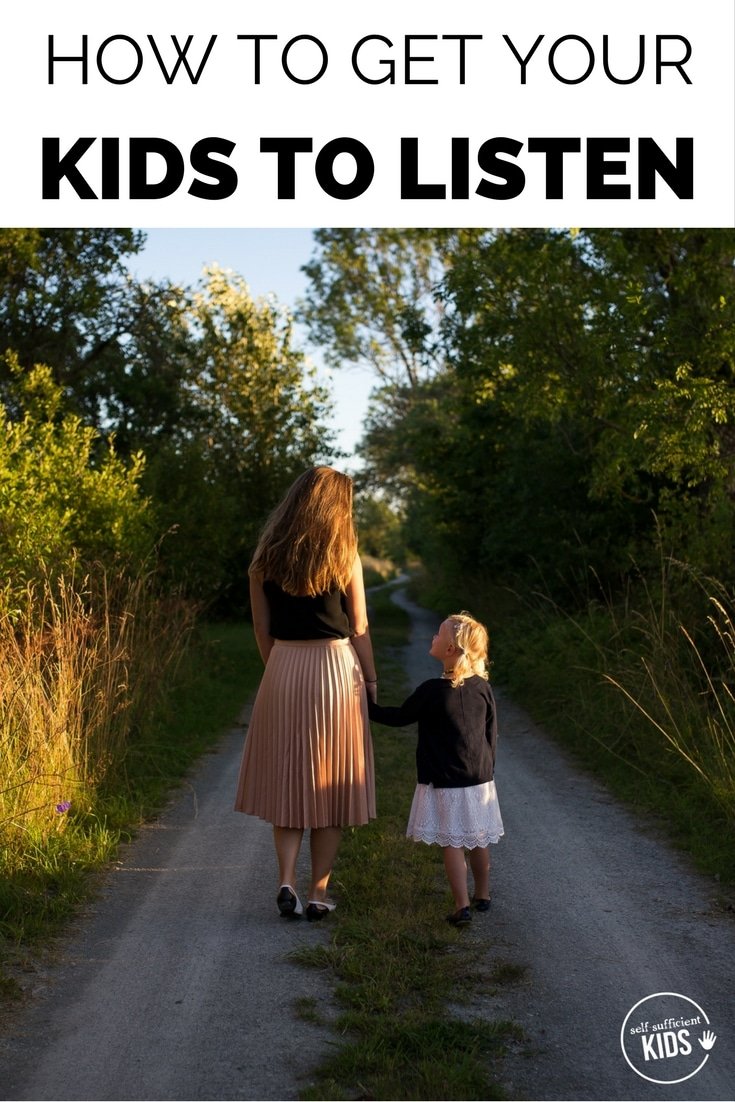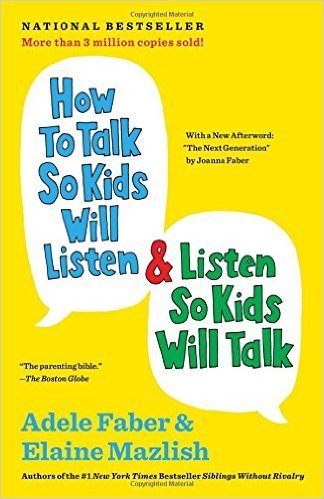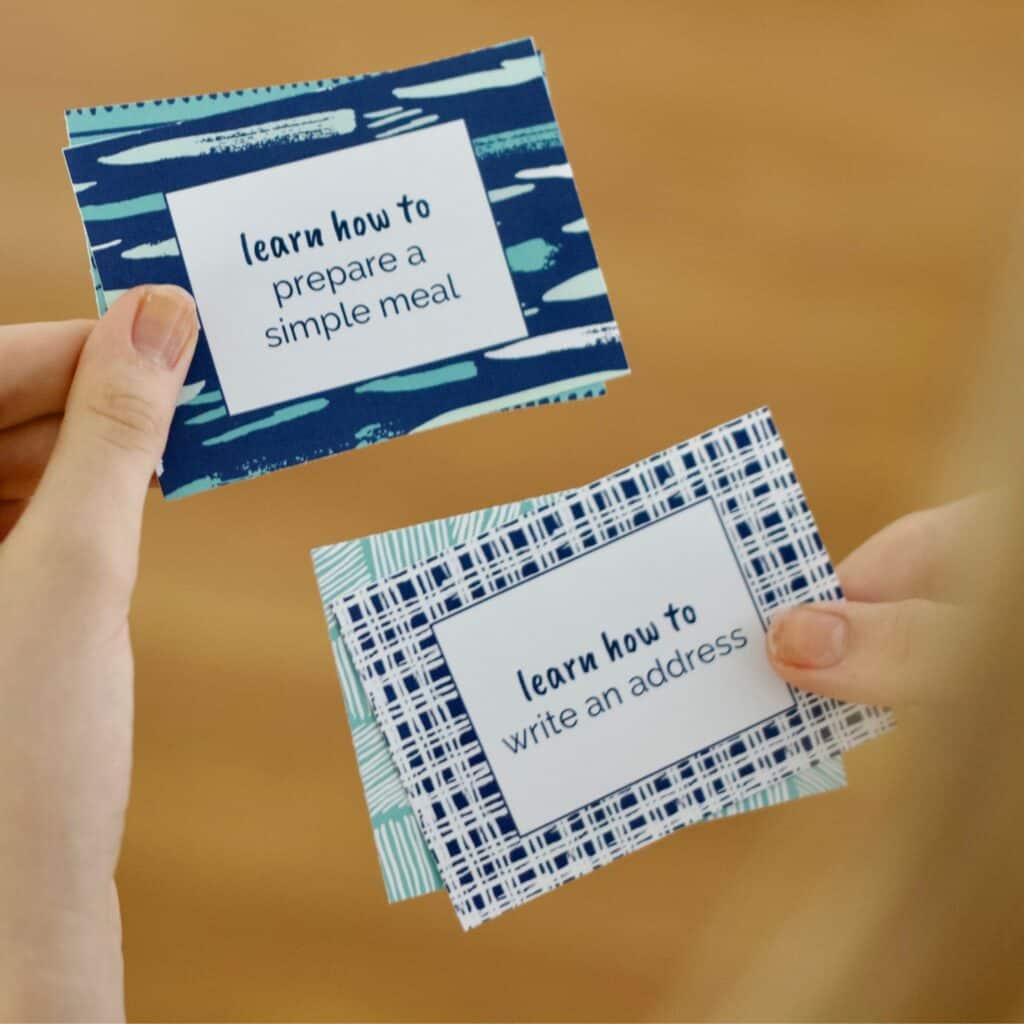Get Your Kids to Listen to You + Strengthen Your Bond With Them at the Same Time
Learn how to talk so kids will listen while also maintaining a strong bond with them.

This post contains affiliate links, see my Disclosure Policy.
“That’s not fair!” my youngest daughter shouted. Fists clenched, eyes glared, and smoke practically billowing from her ears as she accused her sister.
“She’s had four of those chocolate cookies and I’ve only had three!”
Here we go again, I thought – attune to the sound of sibling rivalry.
I tried to reason with her:
“Don’t you remember, you had your fourth cookie after dinner yesterday while your sister was at basketball practice?”
She pounded her feet on the floor and her face turned a shade of red just before yelling, “That’s not true!”
The battle line was drawn and tension rising.
“Please calm down.” I said as I continued my line of reasoning.
“No!” she screamed and made a face at me.
My back tensed at the rude gesture while a wave of hopelessness came over me.
It was no use.
Nothing I said seemed to change her mind – she wasn’t backing down.
And that’s when I realized I was going about this all wrong.
When I was a new mother I was desperate to get my kids to listen to me while also maintaining a strong bond and open communication with them. Was that even possible?
As I watched my tiny infants emerge into speaking toddlers, all of a sudden they were voicing opinions. Following on its heels was the dreaded temper tantrum that inevitably erupted when things didn’t go their way.
Suddenly, I found myself feeling the need to keep my kids in line, let them know the right way to behave, and who was in charge.
I was worn out and increasingly felt that not only were my discipline methods ineffective but that the bond between us was growing thin.
Then one evening I slumped on the sofa and was on the verge of tears when a book caught my eye. I had forgotten about this one: How to Talk So Kids Will Listen & Listen So Kids Will Talk.
“Yes”, I thought. “That’s exactly what I need!”
I devoured that book in just a few hours. The insights were simple and made so much sense.
Instead of simply lecturing and telling kids how to behave, the authors emphasize that parents will be more successful if they help kids understand their feelings through active empathetic listening.
Why?
- Kids are more likely to listen to you: If you respect what kids have to say, they’re more likely to respect what you say (Yes, it works with adults too.).
- It strengthens the parent-child bond: Kids who feel heard and understood feel a closeness with their parents.
- It creates open communication: i.e., your kids are likelier to tell you stuff.
- It helps kids better understand their feelings: Saying feelings out loud to someone else helps anyone better reflect and grasp their emotions.
- It builds kids’ self-esteem: Feeling heard and understood empowers kids.
- It models effective social skills: Listening and showing empathy are powerful tools for all relationships. Seeing parents model this skill teaches its importance and effectiveness.
That sounds great and everything but…
How do you listen to a kid who’s screaming and yelling because you said you wouldn’t buy him a matchbox car in Target?
And really? I’m just supposed to acknowledge their feels when my daughter blatantly disobeys me by running away when I told her we need to leave the playground?
It goes against every fiber of our instinct not to yell, be firm or to present our kids with consequences for their bad behavior. But empathizing with kids has the magical effect of making kids feel safe, trusted, and understood which ultimately leads to – open communication and cooperation – the end goals we’re after.
But there’s a catch. Simply listening to your kids won’t get you the results you’re after.
- Let your child know you’re open to hearing all their emotions: happy, sad, angry, disappointed, frustrated, etc. Being available to listen to all emotions establishes a trust that kids are safe to always be themselves around you.
- Try to avoid criticism or blame: If your child has done something you don’t like or isn’t appropriate, acknowledge their emotions and then use empathy to help them understand why what they did was wrong.
- Make it clear your child knows you’re listening: This is best accomplished by repeating back and clarify what they’ve said.
- Honesty is the best policy: Your child will trust you if you’re always honest with them.
Practice makes perfect (or ‘kind of perfect’)
Holding back our own emotions when kids speak out can feel like a betrayal of what we want to be – strong parents who are in charge.
And trust me, there WILL be times when you’ll find yourself not able to hold back.
But trying to incorporate even a few active listening techniques and acknowledging kids’ feelings will begin to lessen some of the all-out wars that can erupt if we’re not careful.
We’ve all been kids before. We know what it feels like – our feelings are intense and often confusing, the world is strange and doesn’t make sense, and what we want more than anything is to feel accepted and know that we’re on the right track.
Having an adult – and especially a parent – who sends a message of empathy and understanding adds to the security kids yearn for. Which not only reduces the frequency and intensity of confrontations but strengthens our relationship with our kids.

What happened next was golden
In her embattled state, I picked up my daughter, carried her to the stairs away from her sister and sat down next to her. Looking her in the eyes I asked: “You’re pretty mad, huh?”
Out rushed all the emotions she was feeling. Her sister always gets more than her and she honest-to-goodness didn’t have four cookies. As she spoke, I kept my mouth shut, shook my head and acknowledged that she was pretty darn angry.
At that intense moment, I didn’t mention the yelling, the way she almost hit her sister or the rudeness of her tone. I just acknowledged what she was feeling.
What happened next was magical.
My daughter began to calm down. The anger over the cookie simply went away. She gave me a hug and said, “Sorry, Mom.” and walked back into the kitchen with her sister.
I was stunned.
Later, when the dust settled, I discussed the yelling, almost hitting and rude tone of voice.
“Would you like it if I spoke to you that way?” I asked.
“No.” she mumbled.
“It’s OK, to have strong feelings,” I said. “But it’s not OK to pretend to hit your sister or speak to me in a rude tone.”
This wasn’t the first or last confrontation that’s happened in our house. And helping our kids understand the respectful way to express their emotions is most certainly a work in progress (as is my consistent use of empathetic listening!).
But as with all of parenting, we aim high and ultimately end up somewhere in the middle – hoping for greatness but in reality just doing the best we can.
>>>To read more about the ideas in this post, you must, must, must read the book How to Talk so Kids Will Listen, Listen so That Kids Will Talk. I love this book so much I give it out as a present at every baby shower I attend.<<<
You can get your copy by clicking on the image below:
You may also like:
How to Get Kids to Stand Up For Themselves
Why Every Kid Should Talk Back to Their Parents
How to Handle a Child Who is Talking Back: Common Problems and Tips
How to Raise Responsible Kids – Not Just Obedient Ones
Ready to teach your child life skills? These cards can help! Each card in this eighty-one deck contains a skill your child can begin practicing with you or on their own. Click here or the image below to learn more.
What to do next…
1. Subscribe to Self-Sufficient Kids’ email list.
Like what you read here and want to learn more? Every Thursday I’ll send you one parenting tip about raising self-sufficient kids and creating the peaceful relationship you yearn to have with your child. Click here to sign up.
2. Take one of my quizzes!
Find out if you’re raising a self-sufficient kid (click here) or if you’re doing too much for your kids (click here). At the end of each quiz, you’ll be asked to provide your email address to see the results.
3. Get your kids started on chores.
Learn how to get your child started on chores (& keep them motivated + avoid power struggles) by enrolling in my Get Your Kids Successfully Started on Chores course. Click here to learn more and sign up.

About Kerry Flatley
Hi! I’m Kerry, the mother of two girls and a certified parent educator. I believe it is possible for parents to have a supportive, loving, and warm relationship with their kids while raising them to be independent and ultimately self-sufficient. Over the years, I’ve read numerous books and articles that support this belief and I’ve put these ideas into practice with my own kids. Read more about me and Self-Sufficient Kids here.



